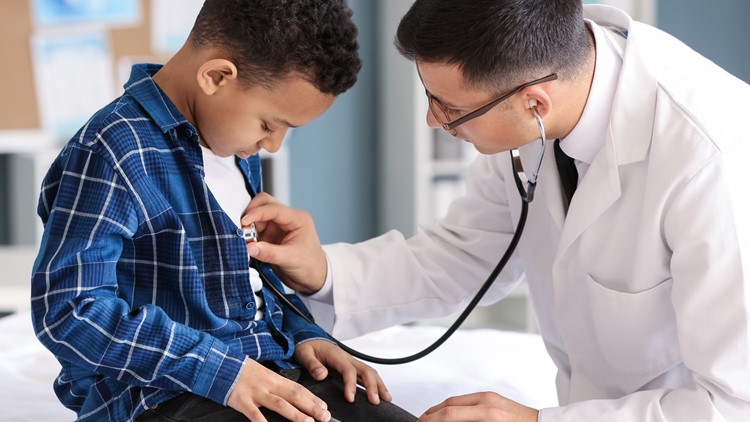PORTLAND, Ore. — Beginning in 2022, Oregon's Coordinated Care Organizations (CCOs) will attempt to better understand the unmet social and emotional needs of children age 5 and younger.
The CCOs provide community-based, nondiscriminatory care for people covered under Oregon's Health Plan.
The idea was driven by a new incentive metric, and developed collaboratively by the Oregon Pediatric Improvement Partnership at Oregon Health & Sciences University (OPIP), Children's Institute and Oregon Health Authority (OHA). It aims to address gaps in health services for young kids with the goal of improving how Oregon's Medicaid system supports the social-emotional health of children.
“A growing body of research suggests that the first five years of a person’s life are critically important to laying the foundation for long-term social, mental and physical outcomes. We must ensure that this time of growth is maximized,” said Colleen Reuland, director of OPIP. “Without proper access to social-emotional services, including counseling and parenting support, children, especially those who have adverse childhood experiences, are at greater risks for delays and health impacts, such as heart or lung disease, during adulthood.”
Data released in April 2021 by OPIP, OHA and Children's Institute suggests less than 9% of children age 5 and younger with insurance from the Oregon Health Plan received any type of social-emotional service. The rate increases to 10% for kids who had a parent put in jail or treatment for a substance abuse disorder, and 30% for kids who experienced childhood abuse or neglect.
The purpose of this next phase is to push the CCOs to address factors that impact services kids and families receive, how they receive them and payment or policy hurdles that need to be addressed.
During the phase, CCOs will look at current services, map data and identify available social-emotional resources and health services. The findings will drive development of community-specific plans by 2024. After the CCOs meet a set of health data measures established by the state, they will receive taxpayer dollars which can be used to address solutions.
“Social and emotional development isn’t only important for long-term health, it is also the basis for ‘school readiness’,” said Elena Rivera, senior health policy and program advisor at Children’s Institute. “Learning is a social process, and without these skills, seemingly basic actions — such as engaging in positive personal interactions, following directions or having the ability to express feelings — can be challenging and may limit academic success.”



